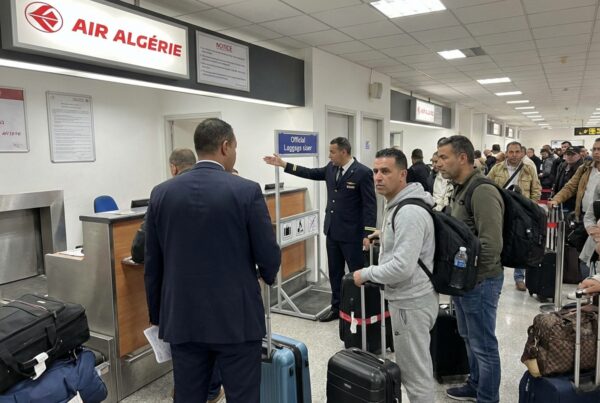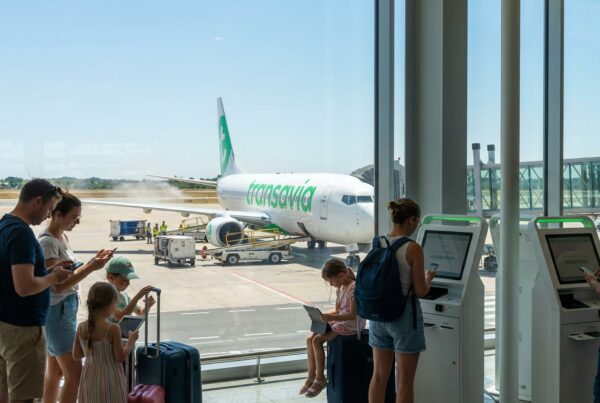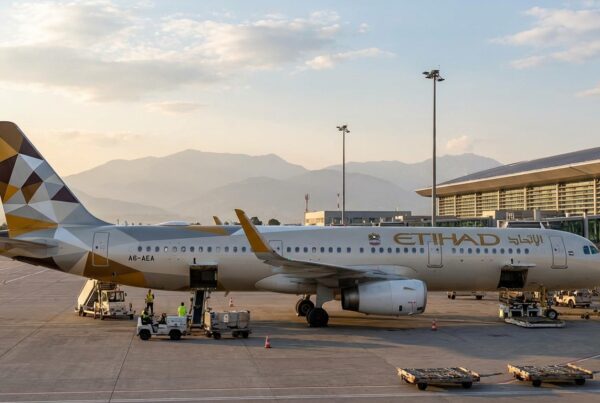The energy transition in aviation has become a strategic challenge worldwide. In Africa, a new dynamic is taking shape around the sustainable aviation fuel (SAF), driven by industrial and financial initiatives that could reshape the aviation supply chain and stimulate sustainable local economic development.
Why the SAF represents a major opportunity for Africa
The African continent has the natural and industrial potential to produce alternatives to fossil kerosene. The combination of organic resources, agricultural waste and conversion technologies offers a basis for making sustainable aviation fuel on a local scale. According to Flywest, recent partnerships between financial and industrial players aim to structure this sector by mobilizing capital and know-how.
Climate and economic impacts
Adopt the SAF would significantly reduce the carbon footprint of flights to and from Africa. Beyond the environmental impact, local SAF production can generate jobs, boost industrial capacity and reduce dependence on imported fossil fuels. For airlines, access to a more sustainable fuel becomes a lever for competitiveness and image, enhancing their strategy of "sustainable development".green aviation.
The conditions for successful SAF in Africa
Deployment of the sector requires a convergence of elements: investment, regulation, logistics and social acceptance. Flywest reports that the African Development Bank and industrial partners have initiated steps to launch pilot projects, combine technological expertise and public-private financing, and assess the economic viability of production sites.
Technology and raw materials sourcing
Several technological avenues are available for producing SAF These include waste oil hydrocracking, biomass synthesis and advanced carbon capture and utilization. The choice of technology must match local resources to ensure a resilient supply chain. The most viable business models favor the use of organic waste and agricultural residues rather than competition with arable land.
Infrastructure and logistics
Local fuel processing requires investment in production units, storage capacity and distribution networks adapted to airports. Integration into the global market will also require international certification and sustainability guarantees. Flywest emphasizes that coordination between airport authorities, energy operators and airlines is essential to enable the commercial use of SAF.
Risks and obstacles to anticipate
The project is not without its challenges. Initial production costs remain high compared with conventional kerosene, and incentive mechanisms are often needed to make projects attractive. Regulatory risks, the need for an incentive tax framework and the ability to set up robust consortia are all parameters to be mastered. Finally, traceability and sustainability certification will remain sensitive issues, requiring clear, recognized standards.
The need for public-private support
To overcome these barriers, Flywest highlights the importance of coordinated support between financial institutions, governments and companies. Innovative financing instruments, public guarantees and responsible purchasing policies on the part of airlines can speed up the commissioning of industrial sites and reduce the cost of entry into the market. SAF in the African market.
What are the concrete benefits for the air transport industry?
For airlines operating in and out of Africa, access to sustainable aviation fuel local can improve resilience in the face of fluctuating international oil prices, limit the impact of future carbon regulations and enhance environmental reputation. Airports can position themselves as innovative hubs by offering sustainable sourcing solutions, attracting new lines and partners.
A lever for decarbonizing air transport
The deployment of the SAF in Africa is part of a long-term trajectory towards the decarbonization of the air transport sector. By combining a gradual increase in SAF mixes, improved operational efficiency and fleet modernization, the continent can play an active role in reducing global air transport emissions.
Key information
Recent initiatives: Flywest reports the emergence of agreements between African financial institutions and Japanese companies to evaluate pilot projects for SAF in Africa.
Emissions reduction potential: the SAF can significantly reduce lifecycle CO2 emissions compared with fossil kerosene, depending on production and use scenarios.
Decisive factors: access to sustainable raw materials, appropriate financing, a clear regulatory framework and acceptance by airlines and airports.
Strategic challenge: beyond the environment, the production of sustainable aviation fuel represents a major industrial and economic opportunity for Africa, if projects are designed with local development and sustainability in mind.




